A Young Woman Is Going Absolutely Viral For Her Series Where She Reads The News, And I Am Absolutely Loving It
Recently, 23-year-old sociology and education graduate student Kelsey Russell has been going viral on TikTok — for reading the news.
It all started with the New York Times: "I got a subscription to the Sunday New York Times physical copy for my birthday," says Kelsey in the first video of her "New York Times Updates" series. "And in order to bring back the newspaper, I'm going to literally document, every day, what I learn."
Kelsey Russell
Kelsey's series, where she really does read and explain articles in the paper, blew up. That video alone currently has 1.7 million views — and it's only one of 14 current "NYT Update" videos, plus videos where she reads USA Today, the Wall Street Journal, and various local newspapers such as the Atlanta Journal-Constitution.
Kelsey Russell / Via tiktok.com
"My name is Kelsey, and I am buying print media again, and reading what I learn and sharing it in my very unique way, to get Gen Z to buy more print media because we're so dumb and illiterate. It's really that simple," she says humorously in one video.
Kelsey Russell / Via tiktok.com
Kelsey's goal, she says, is to become more aware of current events herself and to inspire other members of Gen Z to do the same.
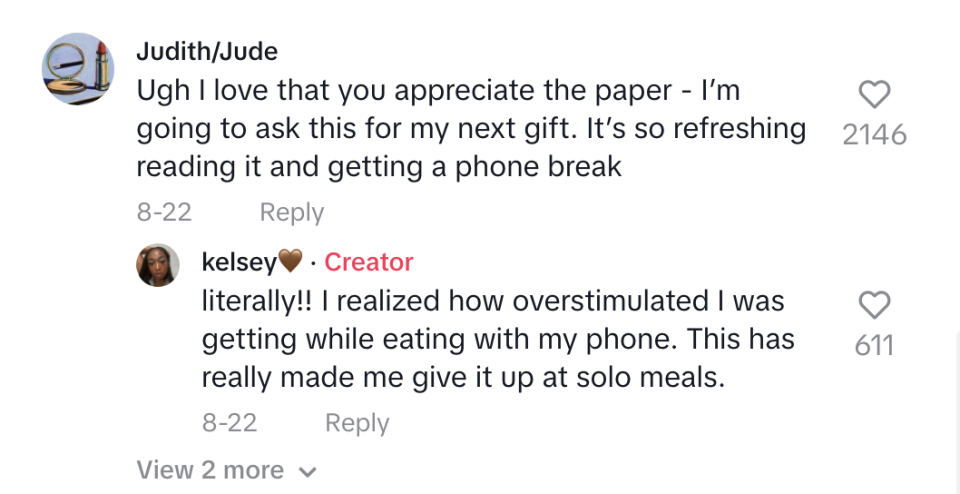
Getting a physical newspaper might seem a little antiquated at first — but it seems that Kelsey's trend has caught on, with followers saying that she's inspired them to take out their own subscriptions.
Kelsey spoke to BuzzFeed about her series and what first got her "into" reading the newspaper. "I really just felt so dumb," she says with a laugh. "I'm in a grad school program and felt like [for] a lot of the things that I was learning, I needed more social, political, and economic context to understand."
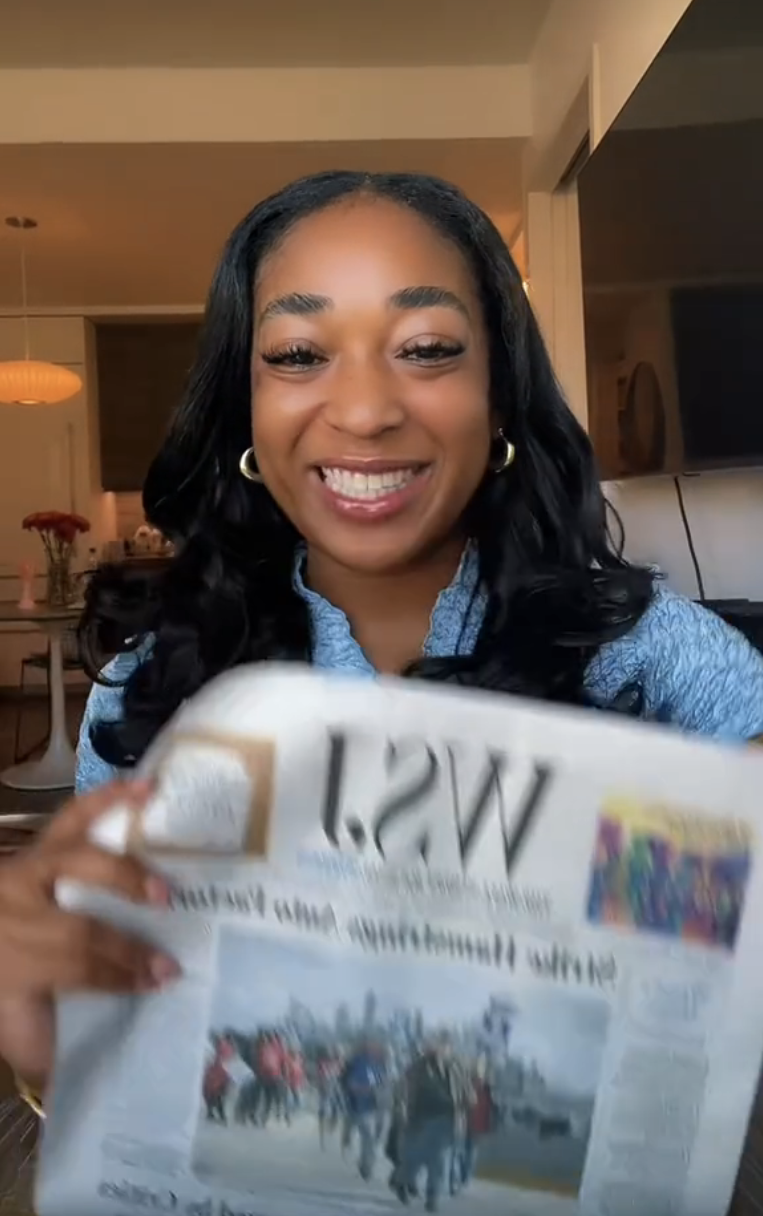
"I was like, 'I'm turning 23, I need to know more about what's going on in the world.'" So, she decided to get that context for herself, and asked for a newspaper subscription as a birthday present.
What's impressive is the way she frames the news as something accessible to her Gen Z followers. "The newspaper is drama... it's literally gossip," she tells viewers in one video. "But the other reason [I think it's important to read the news, besides gossip] is that our generation is extremely overstimulated, and has no concept of emotional regulation."
Kelsey Russell / Via tiktok.com
She says that "investing in physical print media honestly can help our generation become stronger, smarter, and really change the world in the ways we want to."
"Of course, like, government, media, all of these things — policy, law, like, these big, big, overwhelming structures, like of course they are responsible for part of this. But you're a human being that also can be responsible for your actions," she continues in the video.
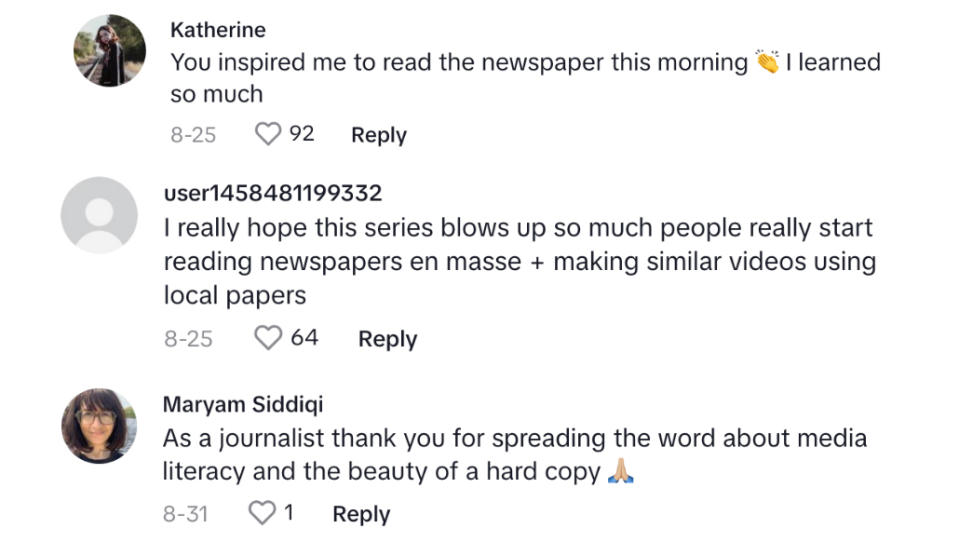
"All the newspaper is is just an opportunity to slow down, and choose the stimulus that you want to input into your body, so our generation isn't so whacked up!"
A lot of us (and by that, I mean young people in general, but also anyone else with an internet addiction) know that our attention spans are shot; but a lot of people don't want to face the fact that that's a choice.
Kelsey told BuzzFeed that "a journalist [I was speaking to once] was like, 'How would you make reading the newspaper faster, for a Gen Z reader to get through in less time?' And I was like, 'I wouldn't.'"
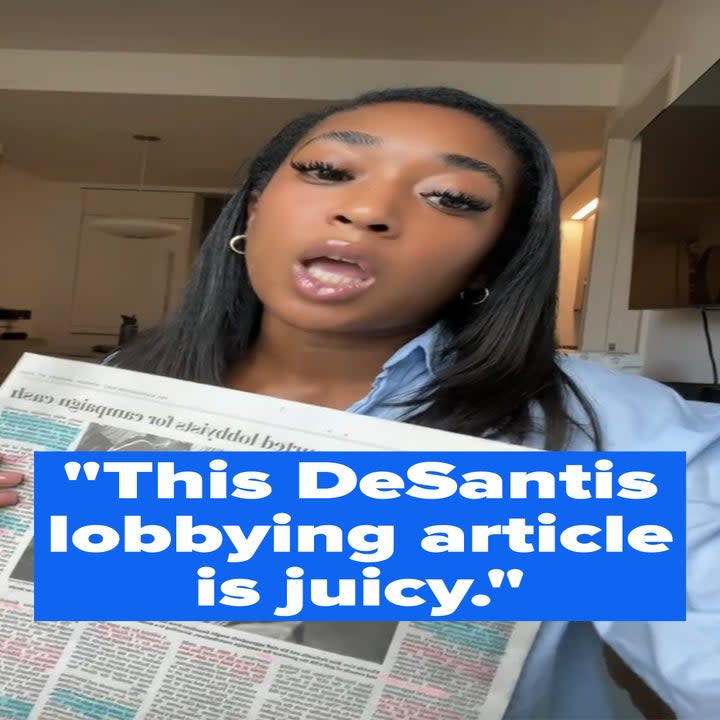
"The whole point is choosing how to consume your time! Newspapers are another way for young people to explore taking back their attention spans."
Kelsey also spoke about meeting her Gen Z audience where they are, and how she originally went about framing of the news, which is fun and easy to engage with.
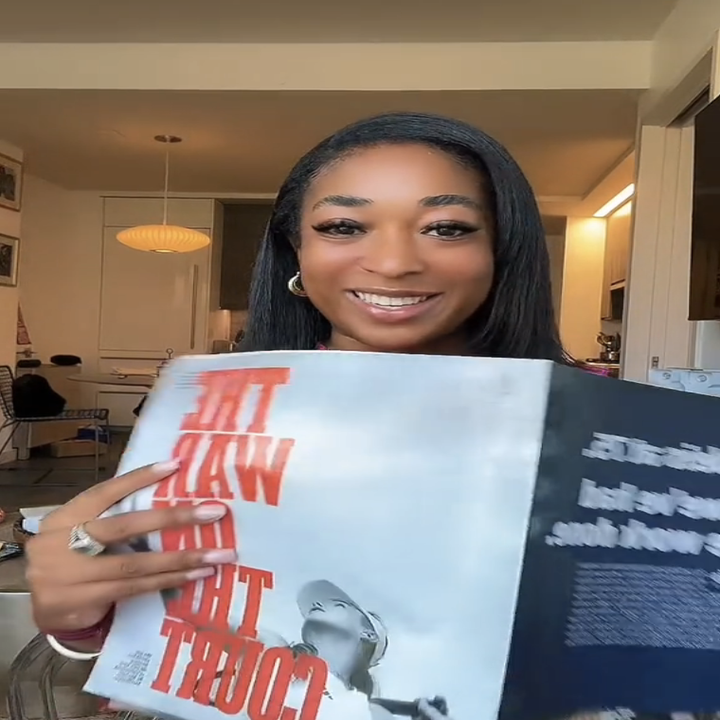
"I've taught students in a couple different environments, like student orgs and other things on campus," she says. "I come from a family of educators, and I know that if you can't teach something to the student who knows the least about it in the room, you don't know enough about a topic."
She tells BuzzFeed that if there's anything in the paper she doesn't understand — the jargon, the words — she takes it upon herself to look it up and learn it in the moment, so she can be educated to speak about it online. She wants to inspire other people to do the same, and make people feel comfortable in the knowledge that they might not already know everything.
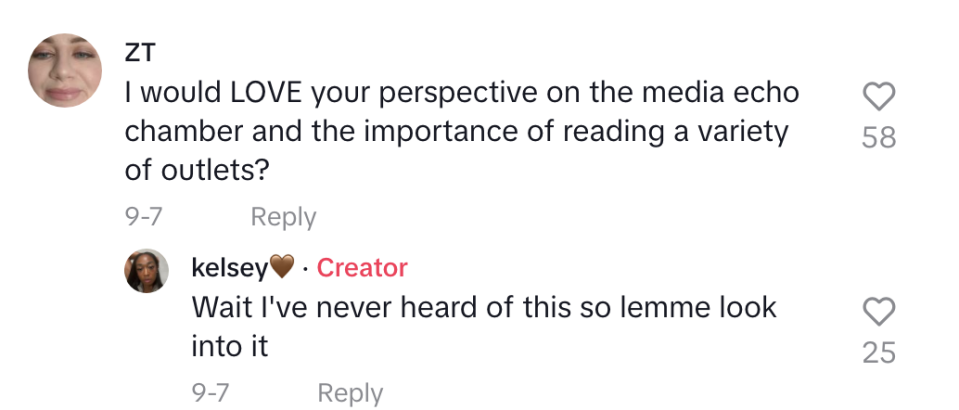
In this video about the Washington Post, Kelsey discusses the newspaper's history, especially in regards to how they broke the stories of the Pentagon Papers and of the Watergate scandal, each of which she discusses. "It is so important to think about, like, American culture and how we think about the '70s as being like, this changing time [in that culture]. The newspaper and what they were bringing out is a catalyst for all of that change," Kelsey asserts.
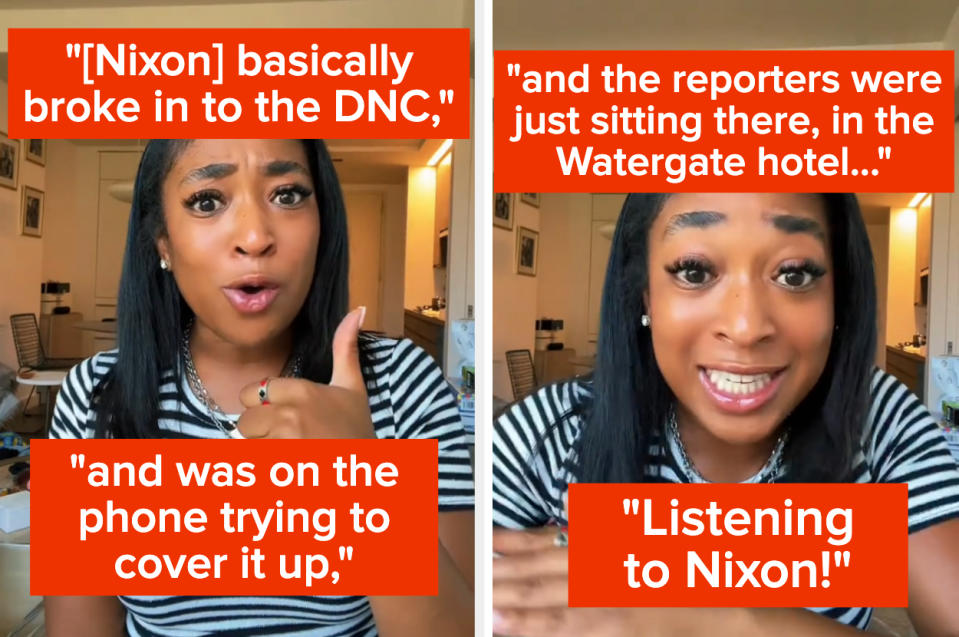
"I say all that because in 2013, Jeff Bezos' holding company purchased the [Washington] Post for $250 million. It's ironic, you know, the paper that once broke the news about us not trusting government is now owned by Jeff Bezos," she continues. And no, it's not that Jeff Bezos is the government — just that he's a powerful and rich man who understands the power of the press, and now owns a legacy newspaper.
"But you know who is not Jeff Bezos?" she asks, holding up a copy of the Post; "All of these beautiful writers that make up the paper. So let's get into them."
If you watch any video of Kelsey's, make it this one! She discusses the March on Washington on its 60th anniversary, explains things so well and energetically, and even got her notes from class to explain topics better. She ALSO points out that back then, media was more constricted — you'd turn on the TV or read the paper and learn about current events. But, she says, "We live in a time now, where because we have so many media outlets, even if CNN, Fox, MSNBC are covering it, I can change to [E!] and watch the Kardashians... so that causes our policy window to shrink."
Lots of people in her comment section — and also, Kelsey herself — have brought up media literacy, which is a rather hot topic for Gen Z. "Our generation is — how do I say this," Kelsey tells BuzzFeed. "It's beautiful, but it's also a plague — we're almost plagued by our empathy."
She talks about how many young people often use their feelings, and their claims of being "too overwhelmed" by news that can be jarring, saddening, or disturbing, to "get out" of dealing with current events.
"Sometimes as a generation, we stake our emotions in other people's problems, and that can be good, but a lot of people don't know how to deal with that. So they just don't," she says. But we still have a responsibility to be informed about current events: "You can't read a piece and let yourself be bogged down," she says. "Emotional regulation is very important." As is understanding the world you live in.
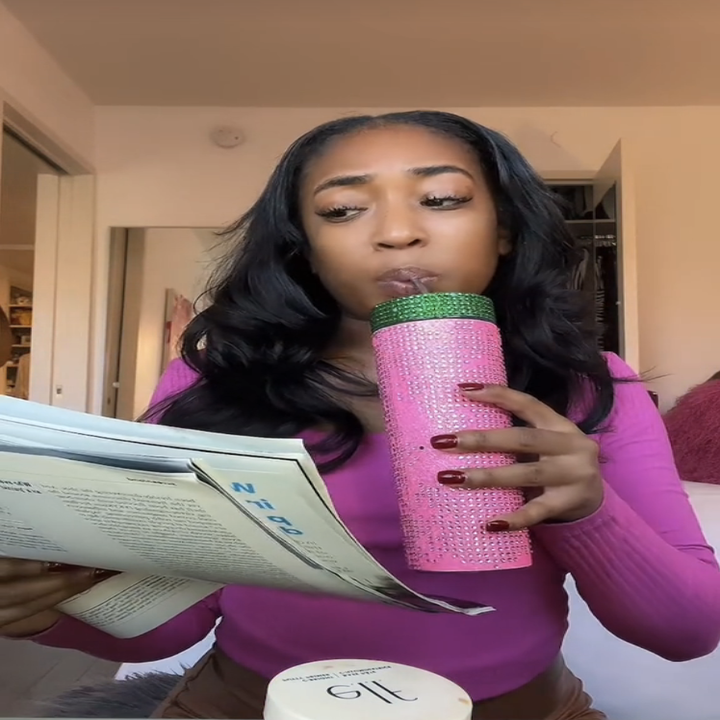
"I must address the allegations, like 'The Post is biased, the New York Times is biased,'" she says in a video discussing an article she read in the Washington Post. "Absolutely! They're created by humans! Some are even owned by corporations! Of course they're biased. It's just your lack of critical thinking skills that doesn't allow you to discern bias. But that's okay, because those can be strengthened."
Kelsey Russell / Via tiktok.com
"[I had a professor who introduced me to] the idea that — he called [media consumption in] the United States à la carte," Kelsey told BuzzFeed. "We live in markets, and as much as we think it's a system, it's markets." For example, one is able to buy a DVD, or a copy of the Wall Street, or a book — any piece of media. "We used to be in a place where we purchased [all] our media, but now we don't do that," says Kelsey. "We have this media that seems to be for free, which is amazing, but it's not for free."
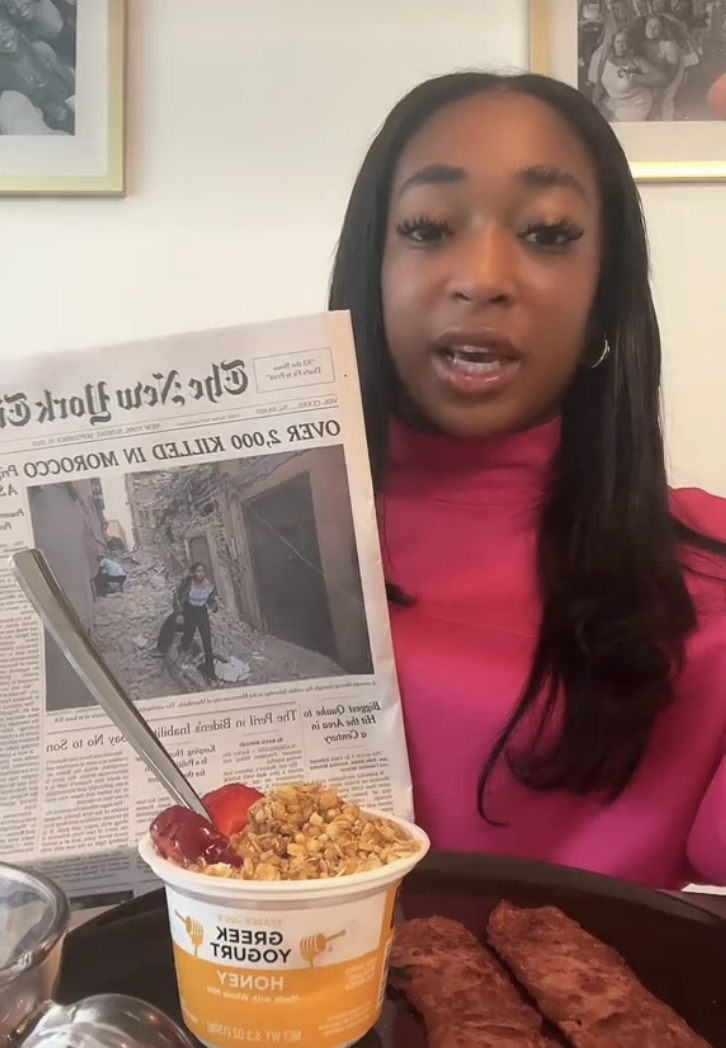
"If you're not buying the product, then you are the product," she continues. Algorithms often show us only what they predict we want to see. Physical media isn't free of bias either — but it's an active, rather than a passive, choice on an individual's part to consume it, and what to consume.
"What I want to emphasize is that you buying print media is you buying back your time and your interests that right now, companies are owning — and they're selling."
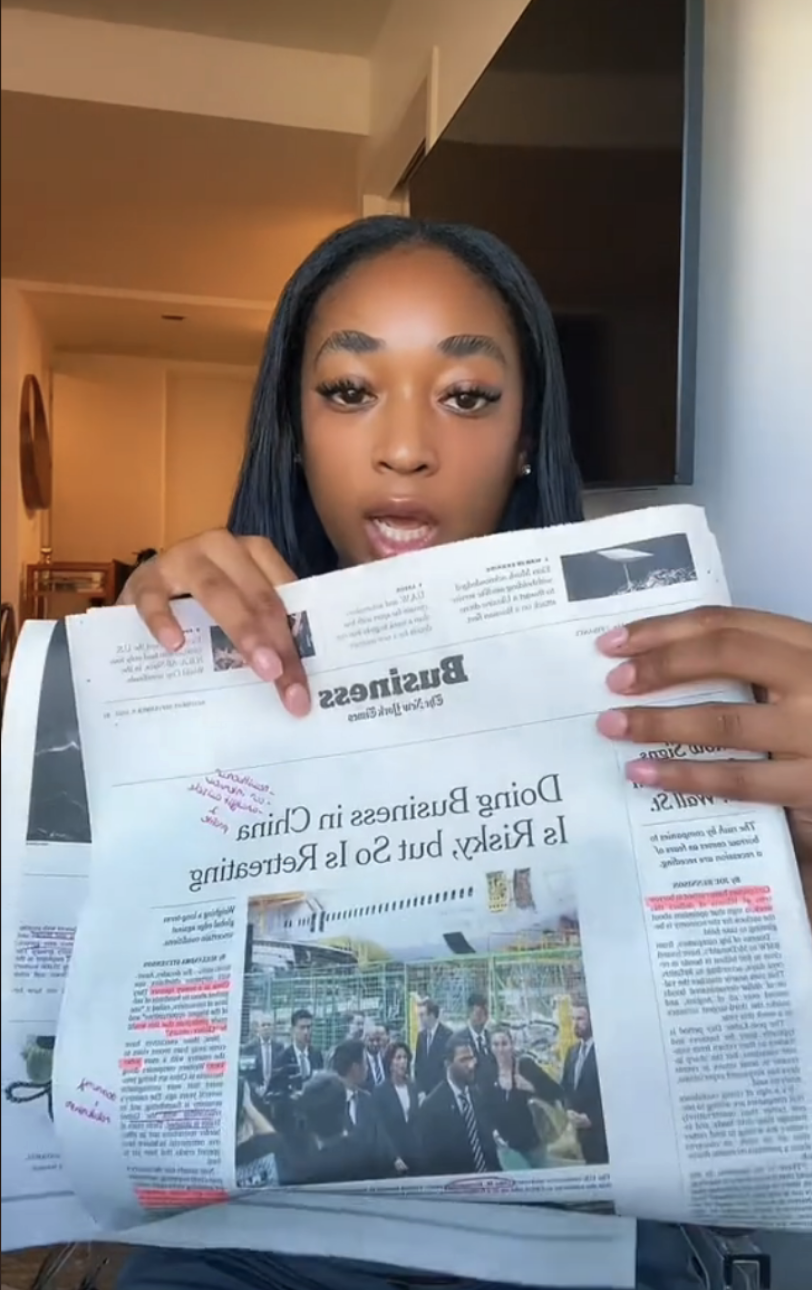
As an example — "They'll see that you looked at weight loss videos or articles online. Once, you owned that idea — that you wanted to lose weight. Now Amazon owns that idea, Google owns it. And they sell it." We all consume online media, but if you only consume online media, it becomes very easy for companies to not show you the whole story — or not show you a story at all.
But Kelsey remains positive about the future of Gen Z's media literacy. "I did this interview [once]... and saw for the first time that the comments were overwhelmingly negative," she says. She was interested in why and noticed that a lot of commenters appeared to be Gen X or older. "[I think] a lot of people older than us think we are just not interested in the world. But we are interested. We care a lot."
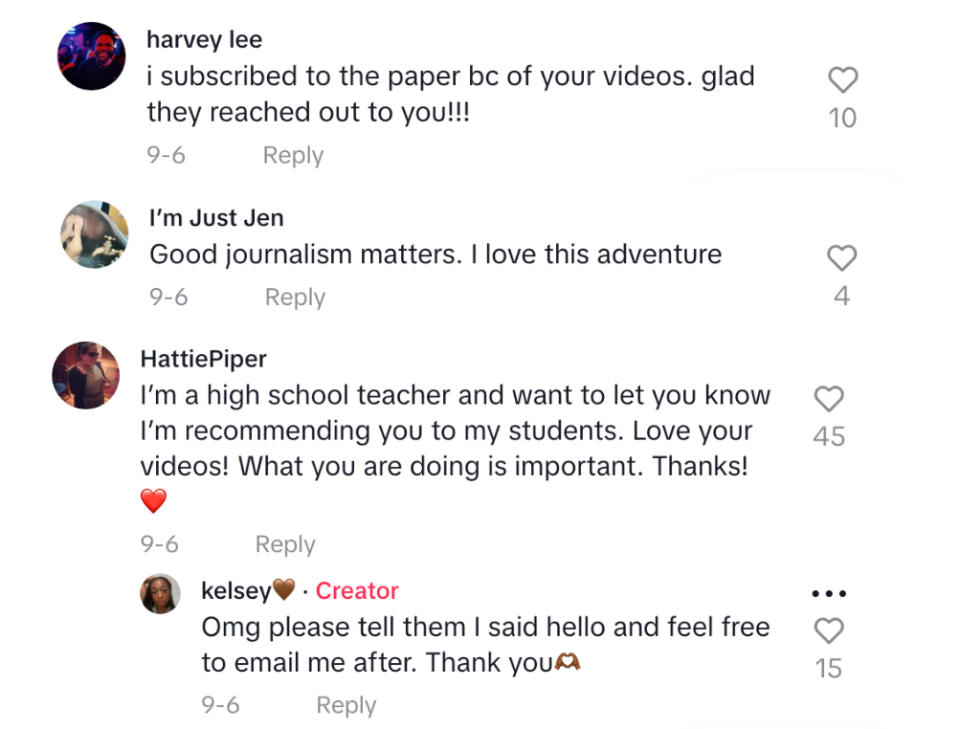
"People perpetuate this narrative that Gen Z isn't into the news, but that when you use TikTok or something to talk to them — to meet them where they are — it's illegitimate.
"I've had a lot of people reach out to me asking me how they can get the newspaper in an affordable way — a lot of them are high school and college-aged," she says. They want to learn.
Kelsey says that her aunt, an English teacher in Florida, went to the library and asked if they had a newspaper with enough copies to hand out for her class. They did — and when she brought them back to her classroom, "the kids had a TIME" reading and discussing the articles that interested them the most.
To younger people — high schoolers and college students — Kelsey stresses that the newspaper is "a way for you to demand what you want to learn in school. If you're not learning what you want to learn, read the newspaper and bring it to your teacher, and ask if you can talk about it in the classroom."
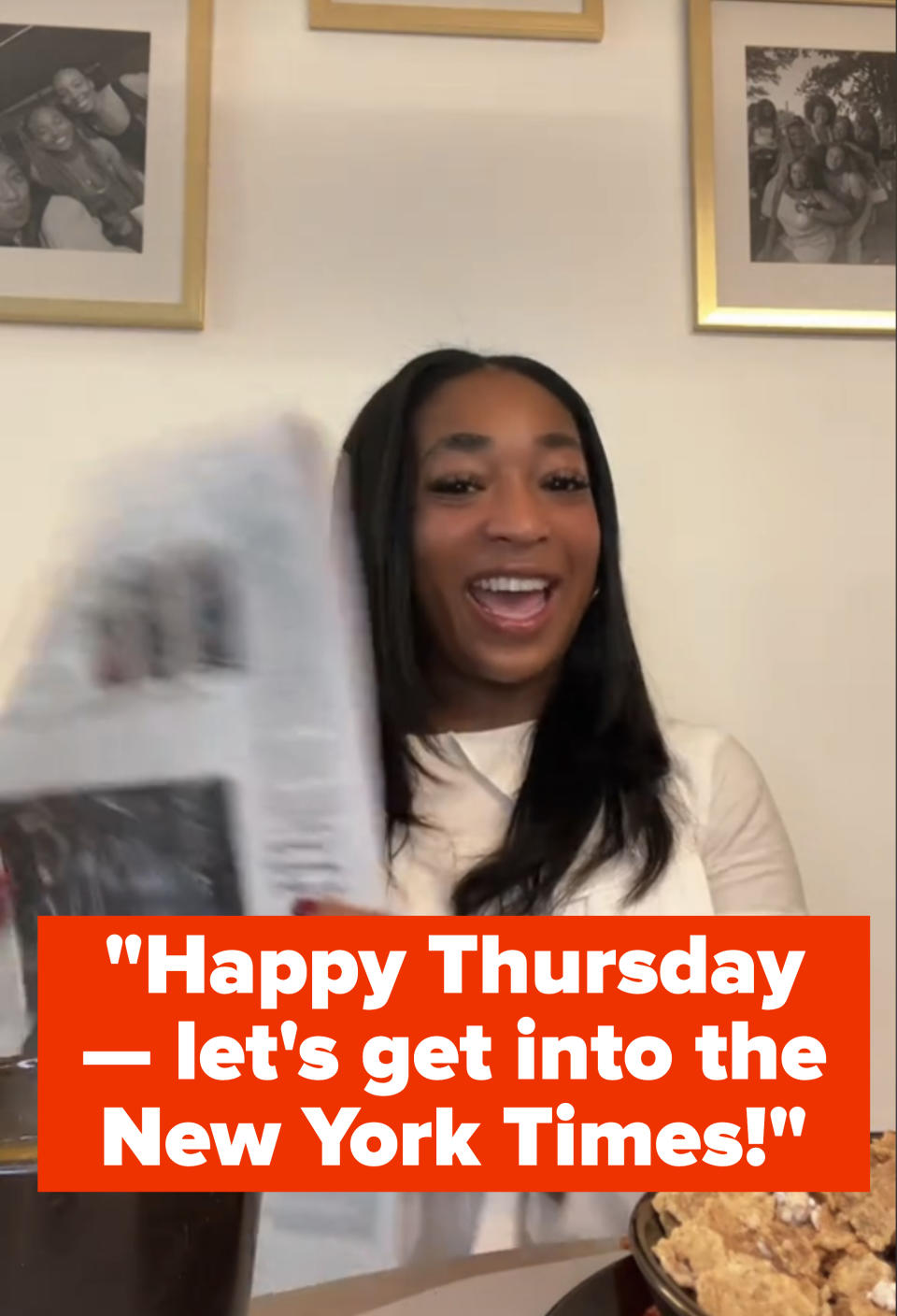
They've banned some books from her aunt's classroom, she says; "but they can't ban the free press."

